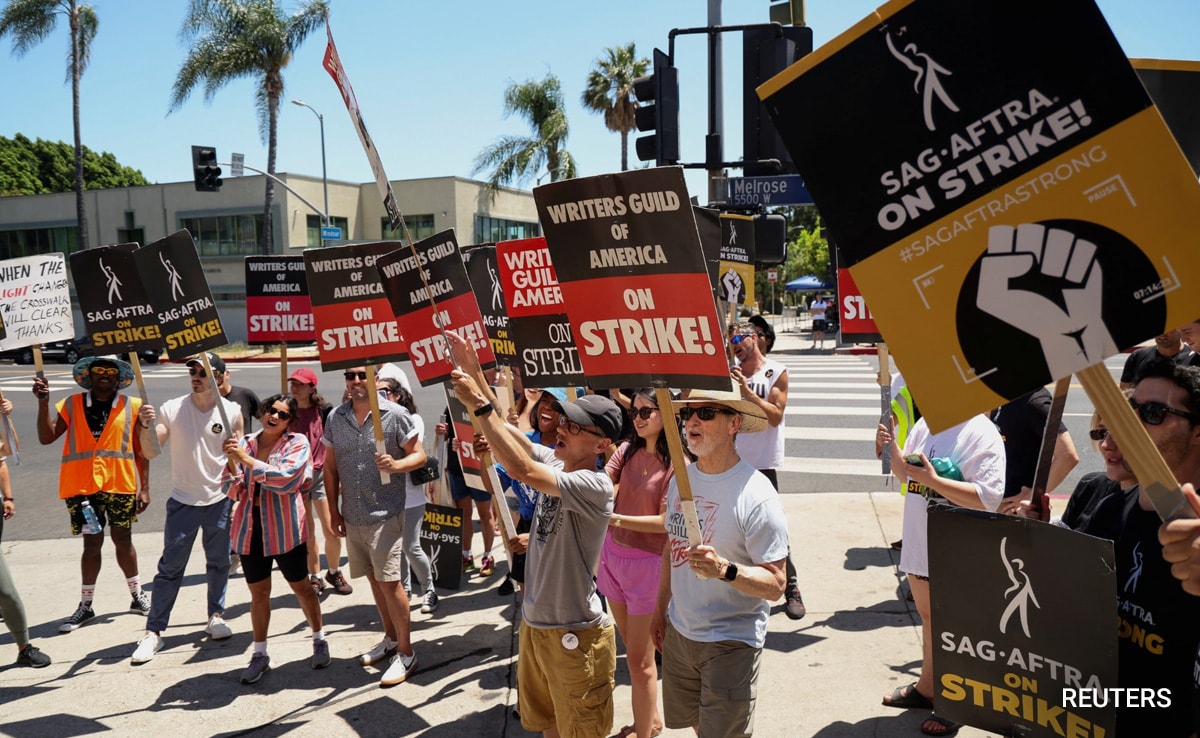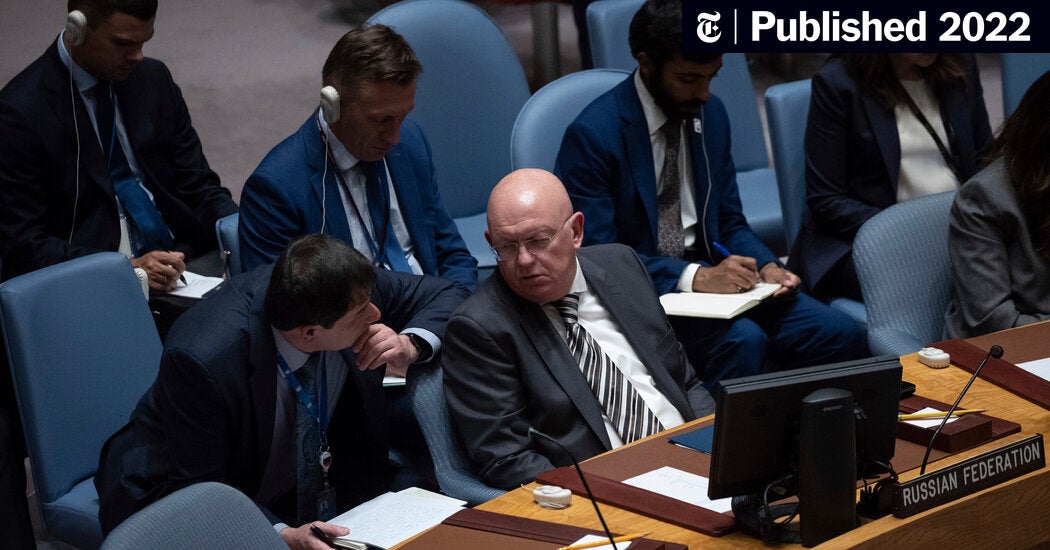Actors Join Writers' Strike: A Complete Shutdown Of Hollywood Production

Table of Contents
The Combined Power of the WGA and SAG-AFTRA Strikes
The convergence of the WGA and SAG-AFTRA strikes has created a seismic shift in Hollywood. This combined action represents a force far greater than either union could achieve individually.
Why Actors Joined the Strike:
SAG-AFTRA, the Screen Actors Guild – American Federation of Television and Radio Artists, cited concerns mirroring those of the WGA. Key issues driving the actors' strike include:
- Diminishing residuals from streaming platforms: The traditional model of residuals, payments actors receive for reruns and syndication, has been significantly eroded by the streaming model. Actors are receiving far less for their work on streaming services compared to traditional broadcast television.
- Lack of transparency in streaming revenue models: Streaming services often lack transparency in how they generate and distribute revenue, making it difficult for actors to assess the fair value of their contributions. The lack of clear data hinders negotiations for equitable compensation.
- Concerns about the misuse of AI and digital likeness rights: The rapid advancement of AI technology raises serious concerns about the unauthorized use of actors' likenesses and voices in future projects without proper compensation or consent. This includes the potential for AI to replace actors entirely, devaluing their skills and experience.
- Inadequate health insurance and pension plans: The shift to streaming has also affected the viability of traditional actor healthcare and retirement benefits. SAG-AFTRA is seeking improvements to ensure actors' long-term financial security.
The Impact of a Joint Strike:
The combined strike power of writers and actors is unprecedented. Its impact reverberates throughout the industry:
- Delayed release dates for upcoming movies and television shows: Numerous projects, from big-budget blockbusters to smaller independent productions, have been indefinitely postponed.
- Loss of revenue for studios and streaming services: The shutdown of production translates to significant financial losses for major studios and streaming giants like Netflix, Disney+, and Amazon Prime Video.
- Uncertainty for production crews and other industry workers: Thousands of behind-the-scenes workers – grips, gaffers, camera operators, and more – are facing unemployment due to the halted productions. This creates a ripple effect throughout the broader Hollywood ecosystem.
- Potential impact on awards season and promotional cycles: The strike could significantly affect award show nominations, ceremonies, and promotional campaigns for upcoming films and television shows.
Key Demands of the Striking Actors and Writers
The core demands of both the WGA and SAG-AFTRA center around fair compensation and protections against the disruptive influence of AI.
Fair Compensation and Residuals:
Both unions are demanding a more equitable share of the profits generated by their work, especially in the context of the rapidly changing media landscape.
- Demand for a more equitable share of streaming revenue: The unions are pushing for a fair and transparent system that reflects the value they bring to streaming platforms.
- Re-evaluation of the traditional residual model to reflect current distribution practices: The current residual system is outdated and needs to adapt to the realities of streaming, which often features multiple viewing platforms and international distribution.
- Increased transparency regarding studio profitability: Access to accurate financial data is essential for negotiating fair compensation and ensuring that actors and writers receive a reasonable share of the revenue they generate.
Protecting Against AI:
The use of AI in content creation is a major point of contention. Both unions demand safeguards to prevent the exploitation of their work and likenesses.
- Negotiation of contracts that protect against the unauthorized use of AI: Actors and writers want explicit contractual protections against their work being used to train AI models or create AI-generated content without their permission.
- Implementation of guidelines to ensure fair compensation for AI-related work: If AI is to be used in the creation of content, the unions demand that actors and writers be fairly compensated for their contributions.
- Regulation and oversight of AI technologies within the entertainment industry: The unions are advocating for industry-wide regulations and oversight to prevent the unethical and exploitative use of AI in the entertainment industry.
Potential Outcomes and Long-Term Effects of the Hollywood Strike
The resolution of the strike and its long-term consequences remain uncertain.
Negotiation and Settlement:
The path to a settlement hinges on the willingness of the studios and streaming services to engage in meaningful negotiations.
- Potential for long and protracted negotiations: Given the magnitude of the issues at stake, negotiations could potentially extend over a considerable period.
- Impact of public opinion and media coverage on the outcome: Public support for the strikers could significantly influence the outcome of negotiations.
- Possibility of a compromise that addresses some key demands: A negotiated settlement may involve compromises on both sides, but achieving a balanced outcome that addresses the core concerns of the unions remains paramount.
Long-Term Impact on the Entertainment Industry:
This joint strike has the potential to reshape the relationship between studios, streaming services, and creative talent.
- Potential changes in compensation models: The strike could lead to the development of new compensation models that are more fair and equitable for actors and writers in the streaming era.
- Increased use of independent production companies: The strike may encourage a shift towards independent productions, which could offer greater creative control and potentially better working conditions.
- Changes in the way AI is used in entertainment: The industry may need to develop new ethical guidelines and regulations regarding the use of AI in content creation, ensuring fair compensation and preventing exploitation.
Conclusion:
The actors' joining the writers' strike marks a pivotal moment in Hollywood history. This unprecedented joint action—the actors' strike and the ongoing writers' strike—has brought production to a standstill, underscoring the urgent need for fair wages, improved working conditions, and protections against the evolving challenges of the entertainment industry, particularly the rise of AI. The outcome of this joint strike will have far-reaching consequences for the future of film and television production. Staying informed about the negotiations and their outcomes is crucial. Keep following the news to stay updated on the ongoing actors' strike and its implications for Hollywood and the future of entertainment.

Featured Posts
-
 Middle Managers The Unsung Heroes Of Business Success
Apr 22, 2025
Middle Managers The Unsung Heroes Of Business Success
Apr 22, 2025 -
 How Middle Management Drives Company Performance And Employee Engagement
Apr 22, 2025
How Middle Management Drives Company Performance And Employee Engagement
Apr 22, 2025 -
 Full List Celebrities Affected By The Palisades Fires In Los Angeles
Apr 22, 2025
Full List Celebrities Affected By The Palisades Fires In Los Angeles
Apr 22, 2025 -
 Overcoming The Hurdles Automating Nike Sneaker Manufacturing
Apr 22, 2025
Overcoming The Hurdles Automating Nike Sneaker Manufacturing
Apr 22, 2025 -
 Us Pushes Peace Plan As Russia Unleashes Devastating Air Raids On Ukraine
Apr 22, 2025
Us Pushes Peace Plan As Russia Unleashes Devastating Air Raids On Ukraine
Apr 22, 2025
